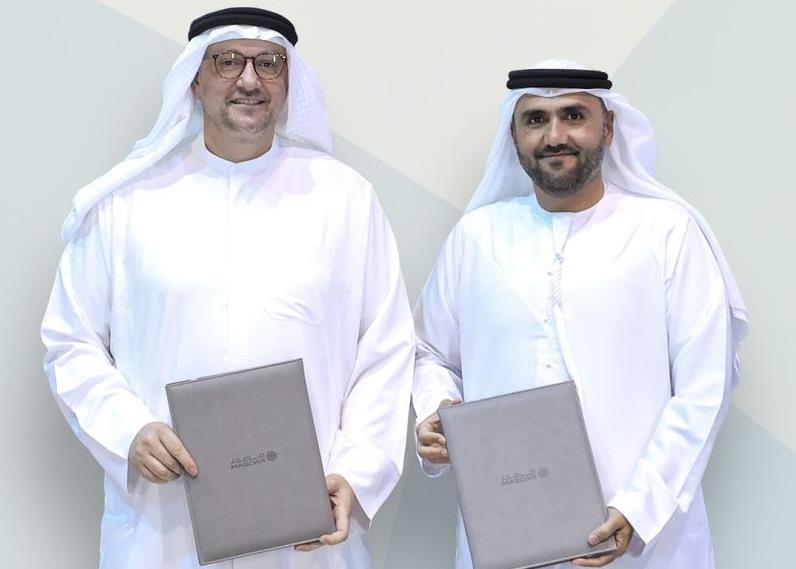
When Dubai International Capital announced in mid-April that it was setting up a $1bn Chinese investment fund, it was just the latest example of the growing links between the Gulf and the world's most populous country.
China Dubai Capital is being set up with Chinese private equity firm First Eastern Investment Group, and will invest in Chinese companies seeking to expand in the UAE. It should find plenty of opportunities.
The launch of the fund follows an official visit to Beijing and Shanghai by UAE Prime Minister and ruler of Dubai Sheikh Mohammed bin Rashid al-Maktoum in early April.
"We can learn from them, and they can learn from us," said Sheikh Mohammed, describing the theme of the trip while on a fleeting tour of the Great Wall of China.
Building relationships
State visits to China are increasingly common for Middle East rulers. The first overseas trip by Saudi Arabia's King Abdullah bin Abdul-aziz al-Saud was to Beijing in 2006, and UAE President Sheikh Khalifa bin Zayed al-Nahyan is due to go this year.
There is no mystery behind the growing links. China has become a global economic powerhouse. Its growth over the past 15 years has averaged more than 7 per cent a year. By 2050, its economy should be the largest in the world.
There are striking similarities between the recent Chinese and Middle East experiences. Both are undergoing rapid economic growth, with rising populations and difficulties over energy supplies. Construction rates in China's cities are phenomenal, even by Gulf standards, and are using much of the world's steel, aluminium and rebar (reinforcement steel bars).
Tying the fates of the two regions together more than anything is Beijing's urgent attempts to secure access to Middle East oil. Its reliance on imported crude has grown from less than 8 per cent in 1995 to almost 50 per cent today.
As a result, China has been keen to find oil and gas wherever it can. Sinopec has a con-cession to explore for gas reserves in Saudi Arabia's Rub al-Khali (Empty Quarter). Along with other Chinese oil companies, it also has oil concessions in Algeria, Libya and Iran. Most recently, PetroChina signed a 25-year agreement with Qatar to import 3 million tonnes a year of liquefied natural gas.
Chinese energy deals are often the catalyst for investments elsewhere. Chinese contractors are building much of the east-west motorway in Algeria, the multi-billion-dollar rail network in Libya, and are vying to redevelop Port Sudan. Firms such as China Harbour Engineering and Huanqiu Contracting & Engineering Corporation are making inroads into the Gulf contracting sector, and Chinese manufacturers have a competitive advantage over Western firms.
"There are three Chinese turbine manufacturers who are coming into the market for the first time," says one Gulf contractor. "Clients are being told they have to wait at least 24 months to get a turbine by the established players. The Chinese are saying they can deliver in half that time, so guess who will win?"
Chinese companies are establishing themselves throughout the region. "The Gulf represents a great opportunity for us because it is growing so fast," says Ally Wei, a senior executive at Shanghai Minmetals, which produces steel, aluminium and mineral products.
At the same time, there are now more than 1,000 Middle East companies active in China, ranging from Dubai-based hotels group Jumeirah to trading houses such as Saudi Arabia's Rafid Group. Many more are looking to come in.
"We are very interested in investing [in China], either directly or through acquisitions" says Sultan al-Jaber, chief executive officer of Abu Dhabi Future Energy Company (Masdar). "But it is not easy. We need a local strategic partner to do it, and that can be difficult."
The Gulf's major oil and industrial companies are also looking at China. Saudi Basic Industries Corporation (Sabic), Saudi Aramco and Kuwait Petroleum Corporation all have downstream projects planned in the state.
The Middle East and China make good business partners, but there is also a political empathy. Beijing has traditionally taken a neutral position on domestic matters in other countries, mindful of the increased criticism it could come under for its own record. It has pursued deals with Iran despite US sanctions, and with Sudan while failing to condemn Khartoum's actions in Darfur.
Beijing's refusal to take sides goes down well in the region, which often faces criticism from the West. The two blocs know they can do business without politics getting in the way. While in China, Sheikh Mohammed made it clear that Tibet and Darfur were not on the agenda. "It is not our business," he said.
The US and its allies remain key markets for the Middle East, but with Western economies in danger of falling into recession, China represents one of the most enticing business opportunities for the region. The links between the two are certain to grow stronger in the coming years.
You might also like...

Neom seeks to raise funds in $1.3bn sukuk sale
19 April 2024

Saudi firm advances Neutral Zone real estate plans
19 April 2024

Algeria signs oil deal with Swedish company
19 April 2024

Masdar and Etihad plan pumped hydro project
19 April 2024
A MEED Subscription...
Subscribe or upgrade your current MEED.com package to support your strategic planning with the MENA region’s best source of business information. Proceed to our online shop below to find out more about the features in each package.








